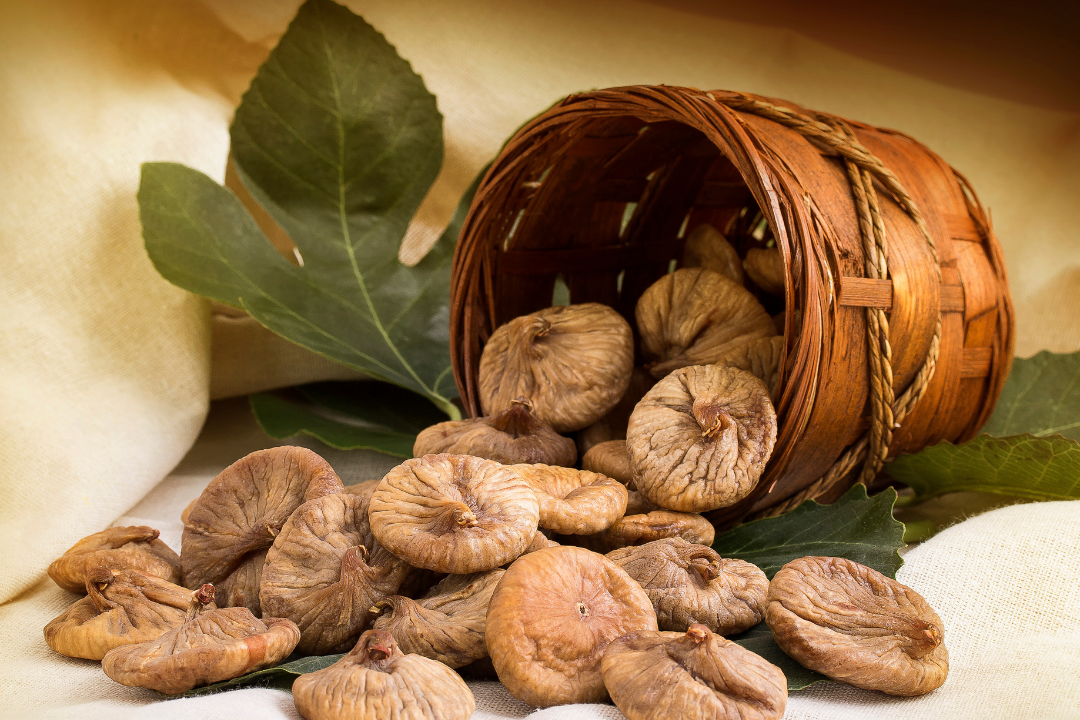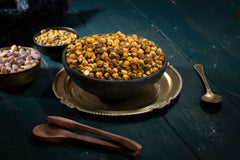Piles, also called hemorrhoids, are swollen blood vessels in the rectal area that can cause pain, itching, and discomfort. For many people, the main trigger of piles is constipation and straining during bowel movements. While medications and surgery are available, natural remedies can provide long-term relief without side effects. One such remedy is anjeer (figs).
So, is anjeer good for piles? The answer is yes! Anjeer has been valued in Ayurveda and traditional medicine for centuries because of its digestive and healing properties. Its rich fiber content, natural laxative effect, and anti-inflammatory benefits make it a gentle yet powerful aid for managing piles and constipation.
In this article, we’ll explore anjeer benefits for piles, the right way to consume it, how much you should eat, who should avoid it, and how to combine it with other natural remedies. Let’s dive in!
Explore a Healthy Range of Dry Fruits at Healthy Master

Understanding Anjeer: A Natural Superfruit
Anjeer, also known as fig, is a nutrient-dense fruit enjoyed fresh or dried. It is packed with dietary fiber, antioxidants, potassium, calcium, and iron. Dried anjeer, in particular, has a concentrated amount of nutrients that support digestion and overall health.
When it comes to piles, anjeer for piles works by improving bowel regularity, reducing strain, and soothing inflammation. That’s why health experts and nutritionists often recommend figs as part of a piles-friendly diet.
Anjeer for Piles and Constipation
Constipation is one of the biggest causes of piles. Hard stools make passing bowel movements painful and put pressure on the rectal veins. Over time, this leads to swelling and irritation, resulting in piles.
Adding anjeer to your daily diet can break this cycle. The high soluble fiber in figs softens the stool and ensures smooth passage. Its natural laxative effect prevents straining, making anjeer for piles one of the best remedies for both prevention and relief.
So, is anjeer good for piles? Yes, because it tackles the root cause—constipation—while also reducing inflammation and discomfort.
Also Read: Benefits of Anjeer

The Benefits of Anjeer in Piles Management
Let’s break down the specific anjeer benefits for piles:
1. Rich in Fiber
Anjeer is a powerhouse of dietary fiber. Just a few dried figs provide enough fiber to add bulk to stool, regulate bowel movements, and reduce rectal strain. This makes anjeer for piles a natural solution to prevent the worsening of hemorrhoids.
2. Natural Laxative Effect
Instead of depending on chemical laxatives that may have side effects, you can rely on the natural laxative effect of anjeer. Consuming soaked figs daily ensures smooth, strain-free bowel movements. This is why nutritionists often recommend soaked figs when people ask how to eat anjeer for piles.
3. Anti-Inflammatory Properties
Anjeer has anti-inflammatory compounds that help reduce swelling, irritation, and itching caused by piles. Regular intake can calm the affected area, providing comfort and faster recovery.
4. Improves Blood Circulation
Good blood flow supports healing in the rectal area. The potassium in anjeer improves circulation, helping reduce the risk of complications and speeding up tissue repair.
5. Gentle and Safe Remedy
Unlike synthetic medicines, anjeer benefits for piles by being gentle on the stomach. It’s safe for long-term use if consumed in moderation.

How to Eat Anjeer for Piles
Many people ask how to eat anjeer for piles to get maximum benefit. Here are the most effective ways:
-
Soaked Anjeer:
-
Soak 3-4 dried figs in water overnight.
-
Eat them on an empty stomach the next morning.
-
This softens the fruit, enhances its laxative effect, and makes it easier to digest.
-
As a Snack:
Dried anjeer can be eaten as a mid-day snack. It’s naturally sweet, rich in fiber, and far healthier than processed snacks. -
In Smoothies:
Blend fresh or soaked dried figs into your smoothie for a fiber boost and natural sweetness.
Also Read: Healthy Smoothie Recipe with Dry Fruits and Seeds.
-
With Breakfast:
Chop figs and sprinkle them over oatmeal, muesli, or yogurt for a wholesome breakfast. -
In Cooking and Baking:
Use figs in energy bars, muffins, or salads. This adds both nutrition and taste.
Whichever method you choose, make sure you also drink enough water. Fiber works best when paired with hydration.

How Much Anjeer Should You Eat for Piles Relief?
When it comes to natural remedies, portion control is important. Anjeer (figs) is highly effective for piles, but eating too much can upset your stomach.
The ideal amount is 3–4 soaked dried figs per day. Soaking figs overnight makes them softer, easier to digest, and enhances their laxative properties. Consuming them on an empty stomach in the morning ensures smooth bowel movements and prevents constipation—the main cause of piles.
Eating more than the recommended amount won’t speed up healing. In fact, overeating anjeer may lead to diarrhea, bloating, or abdominal discomfort because of its high fiber content. That’s why moderation is key. Along with figs, make sure you’re also including other sources of fiber like vegetables, whole grains, seeds, and plenty of water. This balance will give your digestive system the support it needs without overburdening it.
Also Read: Anjeer Benefits During Pregnancy.
Who Should Avoid Anjeer for Piles?
While anjeer for piles is safe and beneficial for most people, there are a few cases where caution is needed:
-
Diabetics: Figs are naturally sweet and contain glucose. Eating too many may raise blood sugar levels, so people with diabetes should eat them in limited quantities and under medical advice.
-
People with sensitive digestion: Since anjeer is rich in fiber, it can sometimes cause loose stools or bloating if consumed in excess. Those with irritable bowel syndrome (IBS) or weak digestion should start with smaller amounts.
-
Allergic individuals: Though rare, some people may be allergic to figs. If you notice itching, swelling, or discomfort after eating anjeer, it’s best to avoid it.
If you fall into any of these categories, consult your doctor before adding anjeer to your piles management plan.
Also Read: How Many Anjeer Can One Eat Per Day?
Combining Anjeer with Other Natural Remedies for Piles
Eating anjeer alone can provide relief, but combining it with other natural remedies ensures faster and more lasting results. Here’s how you can create a holistic piles management routine:
-
Triphala Powder: A traditional Ayurvedic remedy that supports digestion, relieves constipation, and keeps your gut healthy. Having a teaspoon of Triphala with warm water before bedtime works wonders.
-
Warm Water with Lemon: Drinking this in the morning can gently detoxify the body and regulate bowel movements. It’s a simple, refreshing habit that complements the effect of figs.
-
High-Fiber Diet: Along with anjeer, include foods like leafy greens, lentils, whole grains, flaxseeds, and chia seeds. A fiber-rich diet ensures your stool stays soft and easy to pass.
-
Lifestyle Changes: Small changes can make a big difference. Stay hydrated throughout the day, get at least 20–30 minutes of physical activity, and avoid sitting for long hours. These habits reduce pressure on rectal veins and prevent recurrence of piles. Anjeer is very beneficial for weight gain.
When you combine anjeer benefits for piles with these practices, you’re not just treating the symptoms, you’re addressing the root cause and creating long-term digestive health.
Conclusion
So, is anjeer good for piles? Yes, without a doubt. With its high fiber, natural laxative properties, and anti-inflammatory effects, anjeer for piles is a time-tested natural remedy that helps relieve discomfort, ease constipation, and promote healing.
Knowing how to eat anjeer for piles, especially soaked figs, makes all the difference. By consuming 3–4 soaked anjeer daily, staying hydrated, and following a fiber-rich diet, you can manage piles naturally and improve digestive health. Anjeer is very beneficial for males.
Remember, while anjeer benefits for piles are significant, it’s not a replacement for medical treatment. For severe or persistent cases, always consult a healthcare professional.
Embrace the healing power of anjeer and take a step towards piles-free living with Healthy Master’s premium dried figs.
Try the Healthy Master Range of Dry fruits.
FAQs on Anjeer for Piles
1. Does anjeer help with both bleeding and non-bleeding piles?
Yes. Anjeer softens stool and reduces strain, making it helpful for both bleeding and non-bleeding piles.
2. Can children and pregnant women safely use anjeer for constipation and piles?
Yes, in moderation. But it’s best to consult a doctor before giving anjeer to children or pregnant women regularly.
3. How long does it take to see improvement with daily anjeer consumption for piles?
Most people notice improvement in 1–2 weeks of regular consumption.
4. Are there any side effects of consuming anjeer in excess when managing piles?
Yes. Excess figs can cause diarrhea, bloating, or high blood sugar in diabetics. Stick to 3–4 figs daily.
 Deal of the week : Trial Snack Box - 18 Wholesome Delights Just at ₹ 899.00
Deal of the week : Trial Snack Box - 18 Wholesome Delights Just at ₹ 899.00





















